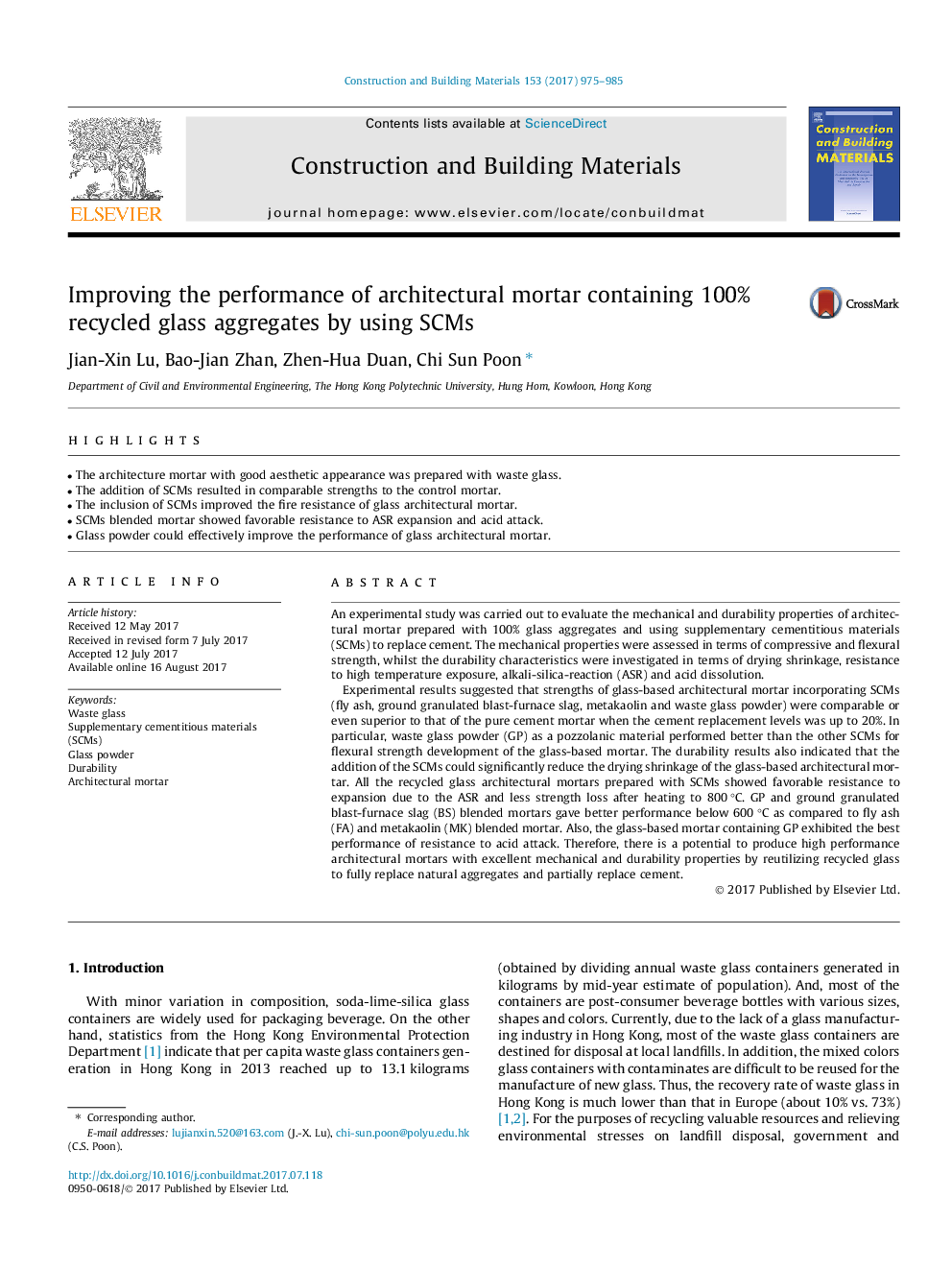| Article ID | Journal | Published Year | Pages | File Type |
|---|---|---|---|---|
| 4913040 | Construction and Building Materials | 2017 | 11 Pages |
Abstract
Experimental results suggested that strengths of glass-based architectural mortar incorporating SCMs (fly ash, ground granulated blast-furnace slag, metakaolin and waste glass powder) were comparable or even superior to that of the pure cement mortar when the cement replacement levels was up to 20%. In particular, waste glass powder (GP) as a pozzolanic material performed better than the other SCMs for flexural strength development of the glass-based mortar. The durability results also indicated that the addition of the SCMs could significantly reduce the drying shrinkage of the glass-based architectural mortar. All the recycled glass architectural mortars prepared with SCMs showed favorable resistance to expansion due to the ASR and less strength loss after heating to 800 °C. GP and ground granulated blast-furnace slag (BS) blended mortars gave better performance below 600 °C as compared to fly ash (FA) and metakaolin (MK) blended mortar. Also, the glass-based mortar containing GP exhibited the best performance of resistance to acid attack. Therefore, there is a potential to produce high performance architectural mortars with excellent mechanical and durability properties by reutilizing recycled glass to fully replace natural aggregates and partially replace cement.
Keywords
Related Topics
Physical Sciences and Engineering
Engineering
Civil and Structural Engineering
Authors
Jian-Xin Lu, Bao-Jian Zhan, Zhen-Hua Duan, Chi Sun Poon,
